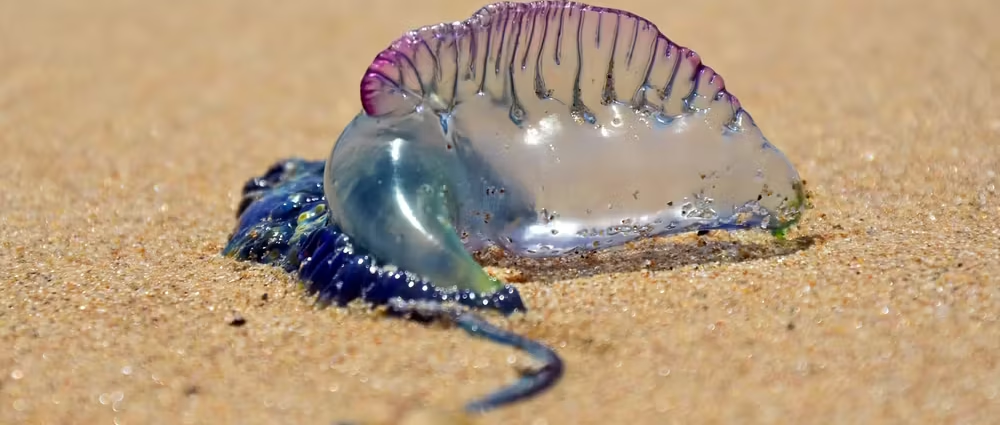In recent years, it has become common to see jellyfish on the beach or in the waters of the sea, especially in the Mediterranean. These animals reach the shores dragged by the marine currents and, in some cases, become annoying for swimmers because of their bites.
Jellyfish have stinging cells, which are free to defend themselves from some danger or to capture prey. And, in some cases, the victim is a human being.
According to the Ministry of Health, although there are always exceptions, jellyfish bites are not usually serious. Contact with these animals (equal their condition) causes severe and immediate pain or itching in the area, with local reactions of redness, swelling, and small vesicles appearing. Less common is the appearance of general symptomatology such as nausea, vomiting, and muscle cramps.
Tips to deal with a jellyfish bite
Whether we’ve been stung by a jellyfish or if we’ve had contact with any, we can follow the following advice from the health authority:
1. Clean the area affected by the bite. Wash, but without rubbing, the area, always using salt water from the sea itself. Otherwise, you can use saline serum. Never forget, we should not use fresh water, because it could spread more poison.
2. Go to the lifeguard station to be cared for.
3. In the case of traces of tentacles stuck to the skin, they should be carefully removed using tweezers or a mechanism that resembles the mode of a clamp. You don’t have to touch the area directly with your hands.
4. No more than 20 minutes after the bite, you can apply cold over the affected area using a plastic bag containing ice, to avoid inflammation and reduce pain. Ice should never be applied directly, because temperature changes could cause burns.
5. In addition, according to the Ministry of Health, it is advisable to avoid exposure of the wound to sunlight. Scratching is also not recommended.
6. If we are not successful and our condition progressively worsens or the pain remains very intense, the rescuer must be alerted or go to a medical center for care.
